EVERYTHING I’VE DONE with my clients has been the result of helping them close the gap between being the best, and being the best ever. Big difference between those two. I had to challenge traditional training techniques, and learn them all over again through the lens of what I was discovering on my own. None of my college professors ever advised me to take the greatest athlete who ever played, have him train on game days, and give him a steak a few hours before tip-off.
Yes. He ate steak before games.
Back in the eighties and nineties, the nutrition prescription for athletes was carbs, carbs, and more carbs. Everyone was eating rice and pasta for fuel, but that wasn’t working for MJ: Aside from feeling bloated, he was playing so hard that it just wasn’t enough for him. When the team was playing at home, he was eating at 3:30 in order to get to the stadium by 6:00. So he was starving by the 7:30 game time, and by the fourth quarter, he could feel his energy decreasing.
So we added a small steak to his pregame meal.
Now, listen: I’m not telling you to eat steak before a game, I’m not giving you nutritional advice here. I’m telling you we had to devise a new plan for Michael, based on his body chemistry and schedule, his playing minutes, and the massive amount of energy he expended on the court. The steak slowed down the digestion of everything else he was eating—the starches, vegetables, etc.—and kept his blood sugar consistent so he had more energy throughout the entire game. It wasn’t something I learned in a book or nutrition class, it just made sense to me. I knew what we’d tried and what hadn’t worked. Let’s do this instead, we can always try pasta or something else at halftime. But for now, we’ll try steak.
“Winning demands that you look past ‘the right way’ and create your own way.”
Believe me, I’ve tried a lot of ideas that didn’t work at all. I’ve spent hours putting together the perfect program, only to take my client through the workout and realize within five minutes that I have to throw out the whole thing. I’m not a genius, far from it. I’m not going to tell you I always know the answer. But I’m going to keep trying solutions until I find it.
Winning demands that you look past “the right way” and create your own way. Coaches love to ridicule players who bend over when they feel fatigued; they say it’s a sign of weakness and tell them to stand up straight instead, with hands on their head. It never made sense to me, even when I was playing. You’re telling me that if I’m fatigued, I’m supposed to hold my arms over my head to open my lungs more? If I’m breathing hard while training or playing, my lungs are already open. It always felt more natural to me to bend forward.
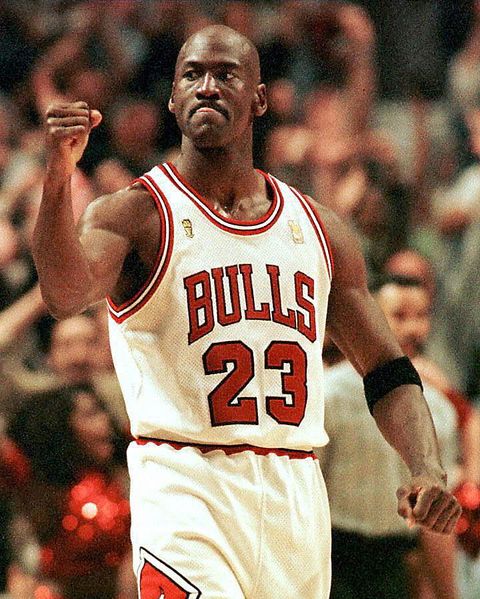
So I finally told Michael, “Grab your shorts.” He thought I was crazy. “Just do this,” I said. “Bend over when you need a second to catch your breath, and grab the bottom of your shorts.” Not hands on his knees, because I didn’t want him putting pressure on his knees. But when he started grabbing the bottom edge of his shorts, he realized he was able to breathe more deeply, and recovered so much faster. You can search the Internet for yourself, and find hundreds of pictures of him on the court, between plays, holding the edge of his shorts.
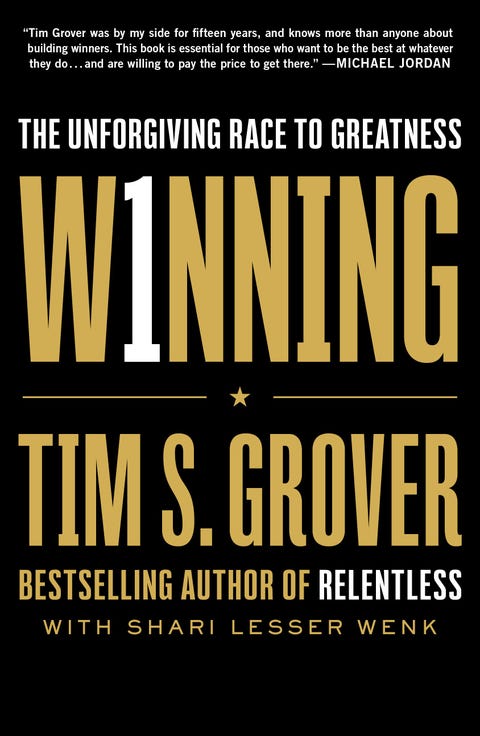
We worked on every possible detail: fingers, toes, ankles . . . everything that could go wrong, we addressed it. It’s no coincidence that he played every game most of our years together; we created the opportunity for that to become a reality. That was our style of “load management”: managing his body to play the complete load of eighty-two regular season games, plus potentially twenty-six more in the playoffs as well as the preseason.
How to think, not what to think.
With Kobe, there were very few things he wouldn’t try in his training, if he believed we could get that .0001 percent. When I first told him about bending over to catch his breath, he said he wouldn’t do it because it didn’t look good. Winning makes everyone look good, I told him. He tried it. It worked.
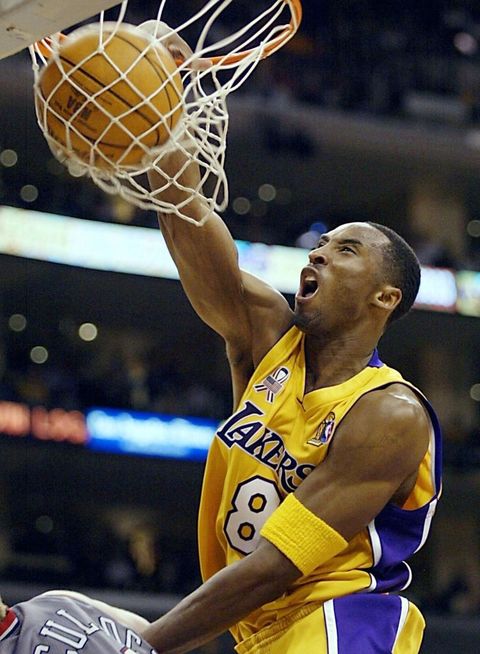
We took bike rides in the Vegas desert at high noon so he could train in the most challenging conditions. We flew to Europe to try the first cryotherapy chambers, where we literally walked around inside a frigid chamber, totally immersed in temperatures that make today’s cryo tubes feel toasty. I had him eat pizza as a pregame meal when he had back-to-back games, because it boosted his energy and stamina. Even his decision to use a helicopter on game days, from Orange County to Staples Center, was about thinking of new ways to get that slight edge, because it gave him time away from everything and everyone before a game. I know the helicopter came to represent catastrophic tragedy, but he had no fear of what could go wrong. If he thought something would give him an advantage, he wanted it.
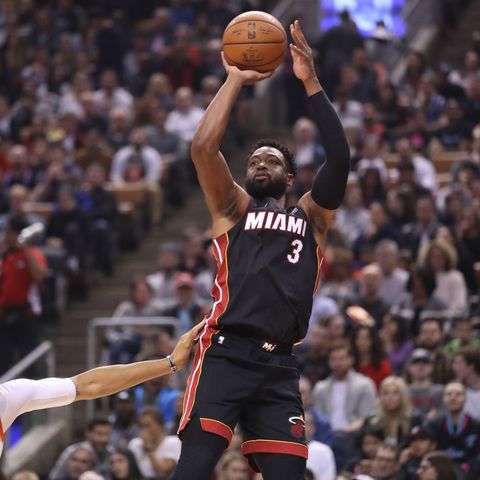
It’s no coincidence that the greats figure out what works for them, regardless of what everyone else does. Dwyane didn’t just work out on game days, he liked to work out right before the game. He preferred to be at home in the mornings; that was his time to relax. So before home games I’d meet him at the arena at 6:00 p.m., before game time, and we’d go through a set of movements for around twenty minutes, take practice shots for ten minutes away from the crowd, just enough to get his body feeling the way he wanted it to feel. He had the whole weight room and practice court to himself, and he used that time to mentally and physically prepare. No one told him to do that; it was his way of creating an environment and schedule that allowed him to perform at a higher level.
LeBron James is another great who figured out his own path to Winning. He essentially created the “superteam” phenomenon in the NBA, by deciding where he wanted to play and with whom, knowing he’d be criticized for going against the way others had managed their careers in the past. Everyone was telling him what to think, where to play, and what to do. He exercised his right to think for himself, and changed not only the course of his career but the direction of the NBA.
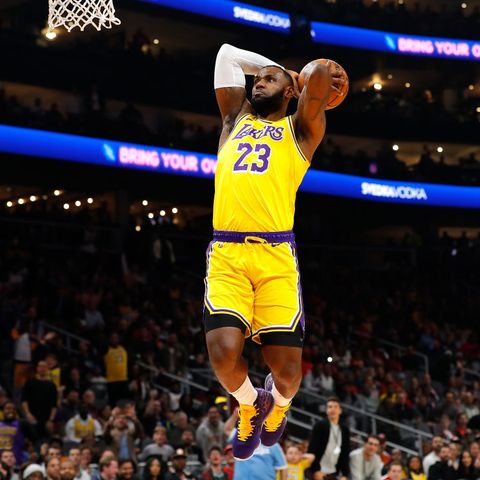
I hear from players every season who say, “Let’s work together, I’ll do whatever it takes.” Then I tell them what it takes, and they can’t even comprehend what I’m talking about. Not because it’s so complex, but because it’s not what they’re accustomed to. They’ve always trained one way; it’s all they know. But if you’re not getting results doing what you know, if you need to plan our work around your vacations, if you get injured every season and can’t figure out why . . . maybe it’s time to think about new ways to achieve what you’re chasing.
Source: Read Full Article
